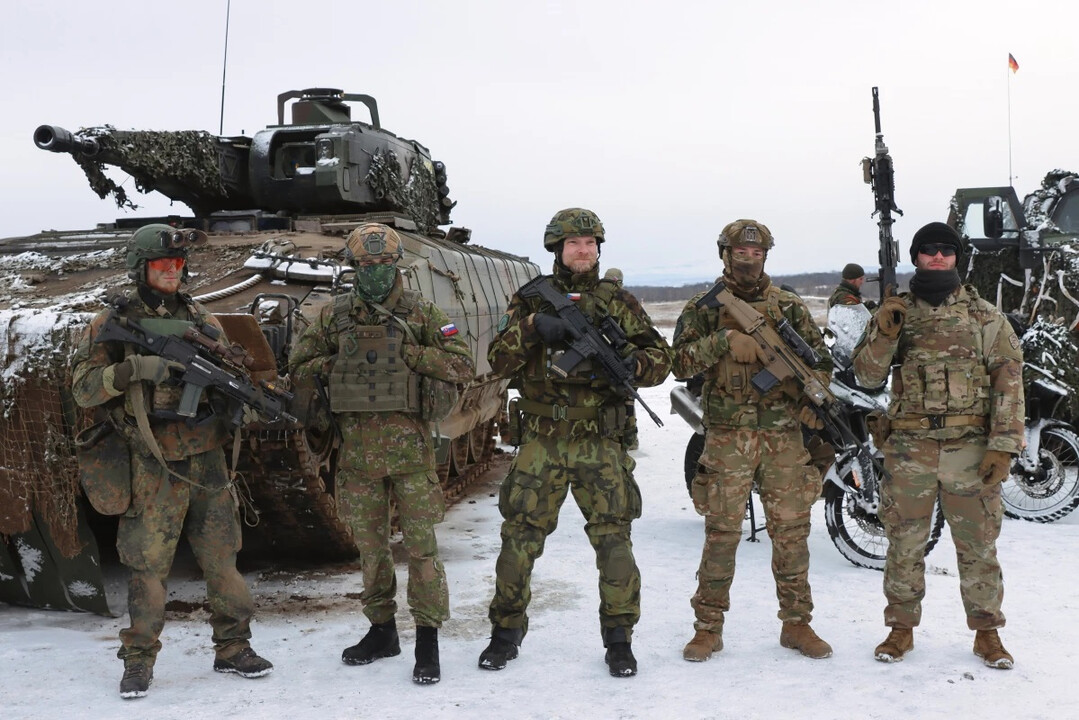
Vladimir Putin's invasion of Ukraine in February 2022 sent shockwaves across Europe. Especially as former US President Donald Trump wavered on the US defense commitment to NATO, Europe was gripped by a sense of crisis, feeling it had to take responsibility for its own security.
Military experts and European governments judge that the Russian threat is real and has grown even larger than three years ago. Alexander Burilkov, a researcher at the Institute of Political Science Research (IPW) at Heidelberg University in Germany, warned, "The Russian army is larger and stronger than it was on February 24, 2022. Russia has hostile intentions towards the Baltic Sea littoral states and the EU's eastern front."
European Countries Actively Discuss Defense Spending Increases and Conscription Revival
As the Russian threat becomes a reality, European countries are pushing for increased defense spending and actively discussing the reintroduction of conscription. However, opinions on this issue are divided within Europe.
According to a YouGov poll, support for conscription for young people is dominant in France (68%) and Germany (58%). Opinions are split in Italy and the UK, while opposition is stronger in Spain (53%).
Conscription Abolished After the End of the Cold War... Some Countries Reintroduce Due to Russian Threat
After the end of the Cold War, most European countries abolished conscription. Currently, only nine countries maintain conscription: Greece, Cyprus, Austria, Switzerland, Denmark, Estonia, Finland, Norway, and Turkey.
Lithuania reintroduced conscription in 2015, the year after Russia annexed Crimea, followed by Sweden in 2017 and Latvia in 2023.
Major Countries Cautious About Reintroducing Conscription... Seeking to Strengthen Security in Various Ways
The five NATO countries with the highest defense spending (France, Germany, UK, Italy, and Poland) are cautious about reintroducing conscription. However, Poland announced plans to provide military training to 100,000 civilians annually starting in 2027.
Friedrich Merz, a potential candidate for the next German Chancellor, expressed support for a year of mandatory military or social service for young people. The UK government stated that while there are no plans to reintroduce conscription, it will significantly increase defense spending.
French President Emmanuel Macron is exploring ways to encourage voluntary military service among young people. Italy favors creating a reserve force instead of reintroducing conscription.
Experts Focus on Nordic and Baltic Sea Littoral State Models to Strengthen Western European Security
Experts argue that Western European countries should learn from the models of Nordic and Baltic Sea littoral states, particularly Finland and Sweden. Finland, which shares a long border with Russia and experienced the Soviet invasion in 1939, has the largest reserve force in Europe.
Researcher Burilkov said, "In Western Europe, there are very few people willing to fight voluntarily. A publicity campaign will be needed to persuade Europeans to volunteer."
Michel Goya, a French military history expert, analyzed, "Europeans have suddenly realized their vulnerability. As the tide of the US recedes, many European countries are realizing how exposed they are."
[Copyright (c) Global Economic Times. All Rights Reserved.]






























